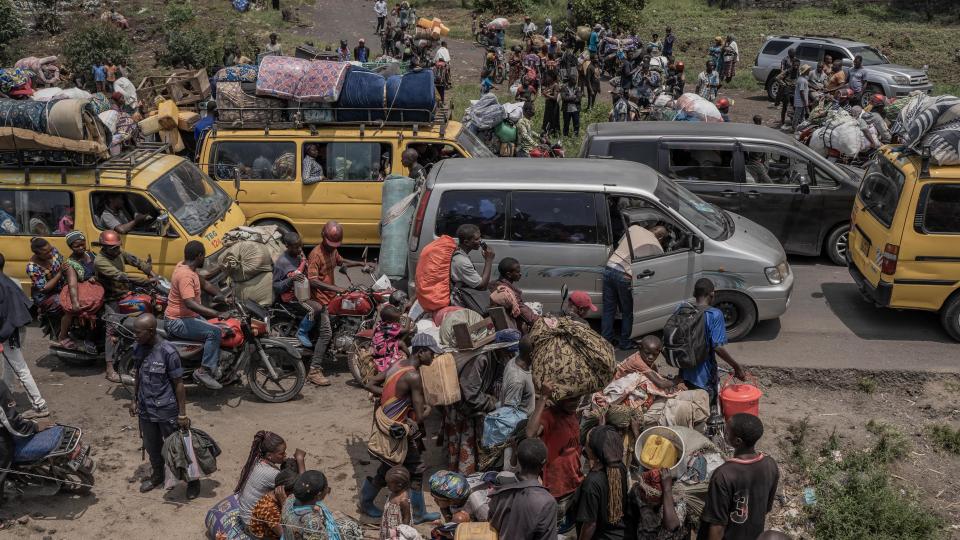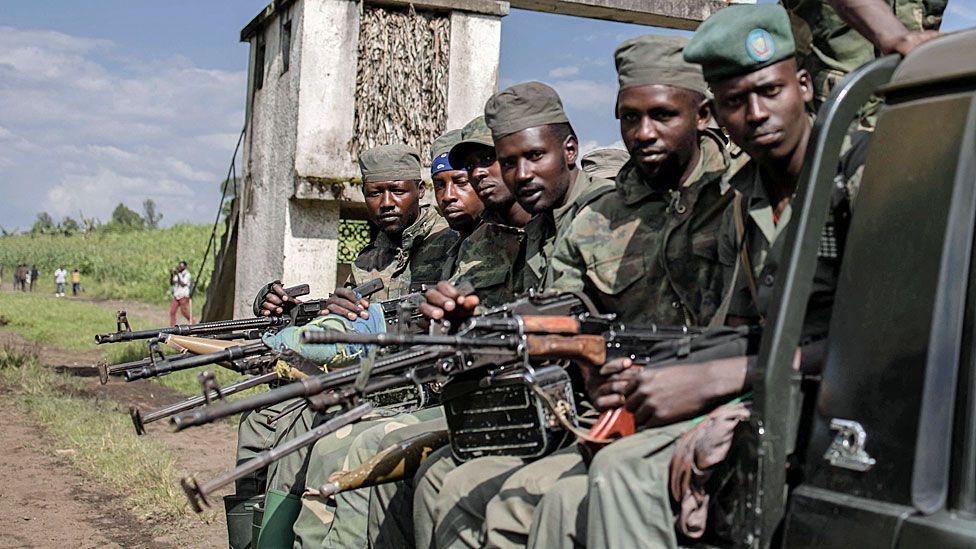Uganda is supporting the M23 rebels fighting across the border in eastern Democratic Republic of Congo, UN experts say, warning that a rapidly escalating crisis “risks sparking a wider regional conflict.”
The heavily armed M23 is often accused of being allied with Rwandans, but UN experts have produced evidence suggesting the troops also have the support of Uganda.
Uganda denies the allegations in the UN report, which also accuses Rwanda of having some 4,000 troops in DR Congo fighting alongside the rebels.
Rwanda did not deny the accusation, telling the BBC that the DR Congo government lacked the political will to resolve the crisis in the mineral-rich east, where unrest has been brewing for decades.
According to UN experts, the number of Rwandan troops is “as large as, or even larger” than the number of M23 fighters, who were estimated at around 3,000 on Congolese soil in mid-April.
Rwanda has long been angry about the presence of ethnic Hutu rebels, known as the FDLR, in eastern Congo. Past joint operations have failed to eliminate the rebels.
The group’s leaders are accused of participating in the 1994 genocide in Rwanda, in which 800,000 ethnic Tutsis and moderate Hutus were killed.
The Tutsi-led M23 first saw serious action in 2012, but was defeated the following year with the help of a multinational force, with most fighters fleeing to camps in Rwanda and Uganda.
Three years ago, they began rearming and the group now controls large swaths of territory in North Kivu province, where M23 has established a parallel administration, according to the UN report.
It is estimated that three million people have fled their homes because of the fighting.
The 293-page report by the UN expertswhich covers events up to mid-April, has only just been published, but was first handed to the UN Security Council Sanctions Committee and then sent to the UN Security Council last month.
Their report also warned that the Burundian army was involved in operations with the Congolese army against the M23 and Rwandan soldiers, increasing tensions in the region.
DR Congo Foreign Minister Thérèse Kayikwamba Wagner said she was concerned about allegations of collaboration between the Ugandan army, M23 and the Rwandan army.
She said the issue would be discussed with Uganda, with which DR Congo is involved in a joint offensive against another rebel group, the Islamic State-linked Allied Democratic Forces (ADF), which is attacking both countries.
But the UN report said it was likely that Uganda was passing M23 supplies and new recruits through its territory.
“Since the resurgence of the M23 crisis, Uganda has not prevented the presence of M23 and Rwanda Defence Force (RDF) troops on or through its territory,” the report said.
Ugandan military intelligence officers have also been in the Congolese town of Bunagana since at least late 2023 “to coordinate with M23 leaders, provide logistics and transport M23 leaders into M23-controlled territory.”
The report also said that M23 leaders, including military leader Sultani Makenga – who is subject to a travel ban due to UN sanctions – had travelled to Uganda for meetings.
Uganda’s deputy military spokesman, Deo Akiiki, told Reuters the report’s allegations were false: “It would be crazy if we destabilised the same area, while sacrificing everything to keep it stable.”


But the report delves deeper into Uganda’s alleged support for the Alliance Fleuve Congo (AFC), a newly formed movement seen by some analysts as the political arm of the M23.
The party is led by the former election leader of DR Congo and claims to want to bring peace to the east. However, according to sources cited in the UN report, the party is seen as an opportunity to legitimize the M23, “while reducing Rwanda’s role in the crisis.”
A joint statement from AFC-M23 in response to a leaked version of the report said the UN experts had distorted the situation, which “could hinder the achievement of lasting peace”.
Detailed accounts were also given of other matters that the organization said were false, such as an alleged M23 attack on Goma airport and the alleged forced recruitment and use of child soldiers by the M23. This is also denied by Rwanda.
The AFC-M23 also denied Rwanda’s involvement in the conflict, saying the “obsession with establishing a link between M23 and Rwanda contributes to fueling the ideology of hate that is the root cause of violence” in eastern DR Congo.
The UN report shows that the area of influence of the M23 and the Rwandan army was the largest ever at the beginning of April 2024. This is a 70% increase since November.
The deployment of advanced military technology and equipment was said to have strengthened joint M23-Rwandan military operations and “changed the dynamics of the conflict”, including by grounding all Congolese military “air assets”.
The report included photos and screenshots detailing the weapons and drones used, which were reportedly supplied to the M23 despite an arms embargo.
Yolande Makolo, spokesperson for the Rwandan government, accused Congolese President Felix Tshisikedi of sabre-rattling.
“He has also continuously threatened to declare war on Rwanda,” she told the BBC, accusing the Congolese army of funding the FDLR and fighting alongside them.
She said DR Congo has every power to de-escalate the situation if it wishes, “but until then, Rwanda will continue to defend itself”.
Late last year, a regional force from the Southern African Development Community (Sadc) was deployed to help the DR Congo army tackle conflicts in the east.
You may also be interested in:


Go to BBCAfrica.com for more news from the African continent.
follow us on twitter @BBCAfricaon Facebook on BBC Africa or on Instagram at bbcafrica
BBC Africa Podcasts







